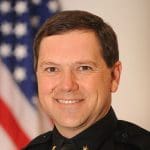Need Help Securing Your Events? These Resources Can Help.
Here are four organizations that can help your school or university protect your sporting events, speeches, concerts and other large events.

One of the first steps in securing event facilities is ensuring law enforcement and campus security staff have the necessary training. Below are some of the resources available to help ensure personnel are able to provide the highest level of safety to attendees.
FEMA – The first place most entities should start with for training is the Federal Emergency Management Agency (FEMA). There is a wealth of both online and in-person training available, including through the Center for Domestic Preparedness, the Emergency Management Institute, and the National Training and Education Division. As of the date of this article, there are more than 700 online courses available. Start looking for courses and options here.
TEEX Sports and Special Events Incident Management – For those looking for a good basic course on how to develop safety and security plans for large events, this free training program is offered at sites around the United States. It is funded through DHS/FEMA and helps prepare attendees for identifying risks, response plans and after-action reports. There are also several related courses that may be of interest. Find out more about this training here.
NCS4 – The National Center for Spectator Sports Safety and Security (NCS4) operates from the University of Southern Mississippi. It hosts annual national conferences and summits in order to both provide training and to gather information from experts around the nation on best practices. It has advisory committees focused on specific needs (such as professional sports vs. collegiate sports), and it frequently offers training courses in conjunction with TEEX. Learn more here.
IAVM – The International Association of Venue Managers (IAVM) provides training for everyone involved in putting on an event, from ticket sales to rigging crews to public safety staff. For those responsible for safety, the Trained Crowd Manager course not only helps meet the requirements of the NFPA Life Safety Code, it also helps ensure personnel understand the difference between crowd management and crowd control, and are able to effectively manage large crowds. Learn more about this organization here.
Stephen Lopez is the Chief of Police at New Mexico State University. He has been in law enforcement for 29 years, and holds bachelor degrees in criminal justice and psychology, a master’s in strategic planning for critical infrastructure, and is a graduate of the FBI National Academy.
If you appreciated this article and want to receive more valuable industry content like this, click here to sign up for our FREE digital newsletters!
 Leading in Turbulent Times: Effective Campus Public Safety Leadership for the 21st Century
Leading in Turbulent Times: Effective Campus Public Safety Leadership for the 21st Century
This new webcast will discuss how campus public safety leaders can effectively incorporate Clery Act, Title IX, customer service, “helicopter” parents, emergency notification, town-gown relationships, brand management, Greek Life, student recruitment, faculty, and more into their roles and develop the necessary skills to successfully lead their departments. Register today to attend this free webcast!














